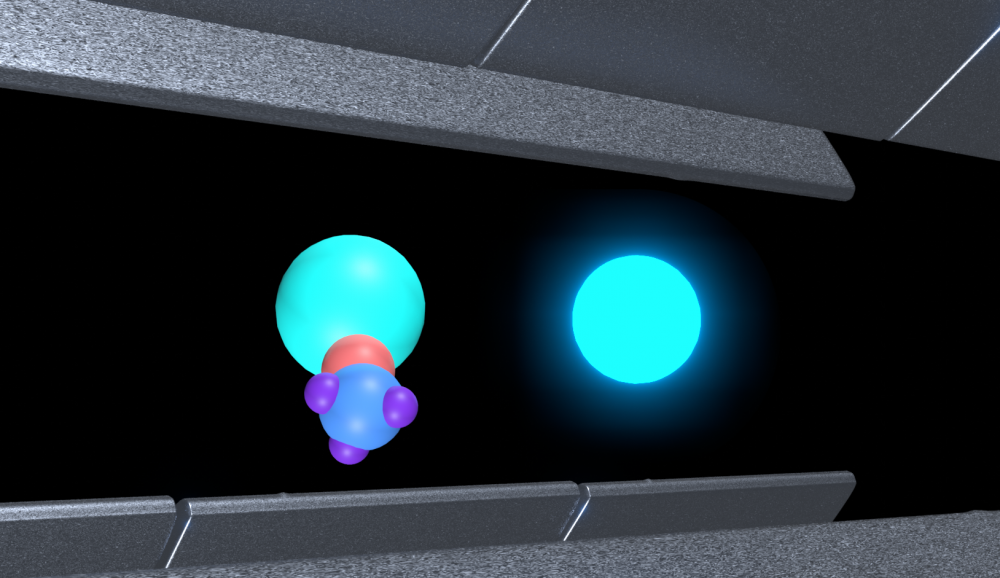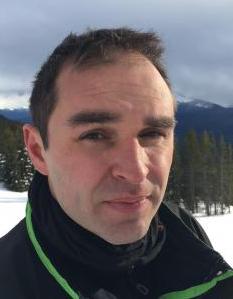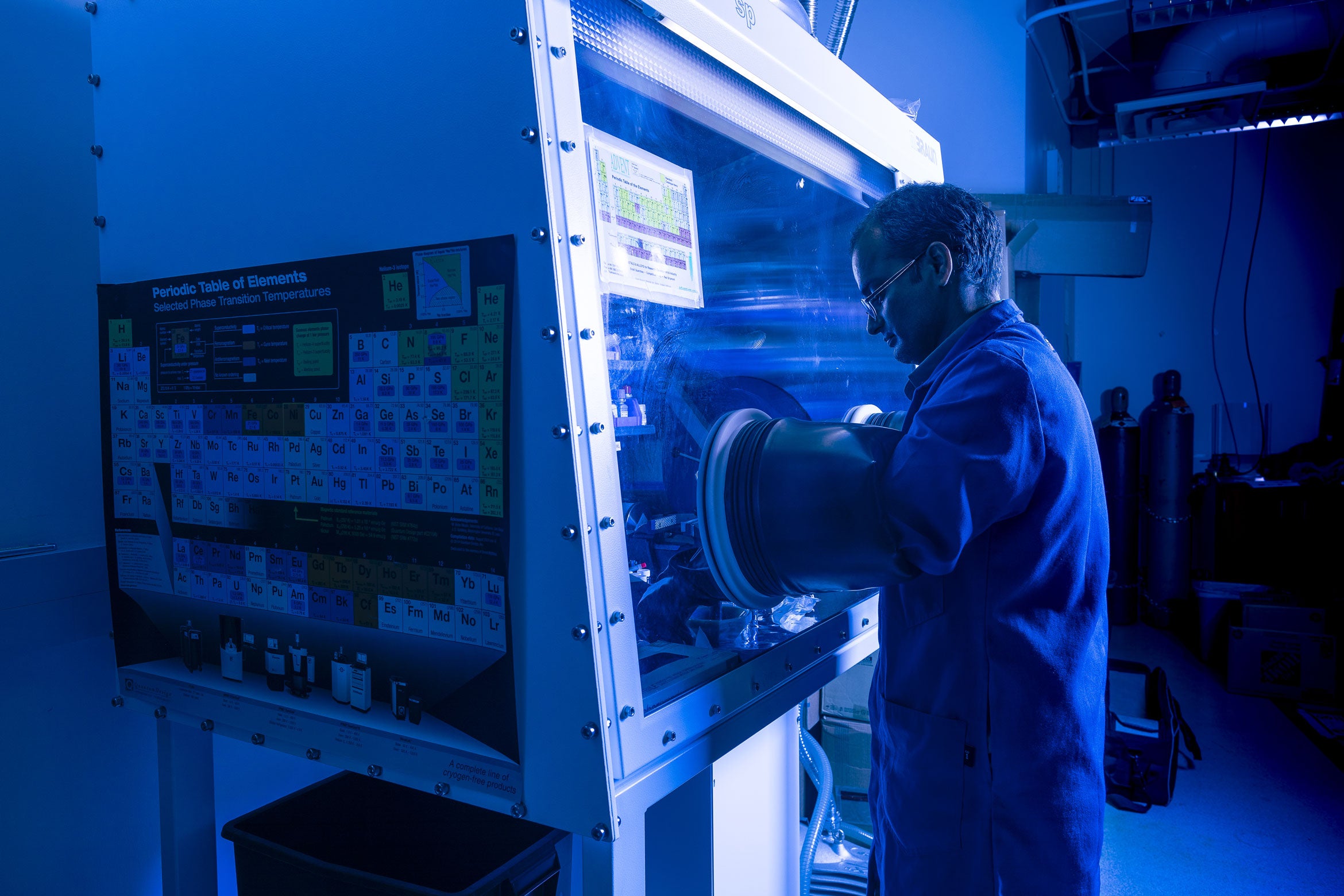
A Rewarding Endeavor

Usually, the deeper a researcher dives into one field, the farther they end up from others. It’s just the nature of specialization. Either that or they end up working at the intersection of related subjects. No so for physicist Andrew Jayich, whose goals to search for symmetry violations with high precision measurements has also opened opportunities to learn about the chemistry of radioactive molecules.
For his promising research, Jayich, an assistant professor at UC Santa Barbara, has landed an Early Career Research Program Award from the Department of Energy (DoE). The recognition, which includes $750,000 in funding, is designed to support exceptional researchers during the crucial early years in their careers, when many scientists conduct their formative work. “Maintaining our nation’s braintrust of world-class scientists and researchers is one of DoE’s top priorities,” said Secretary of Energy Jennifer M. Granholm, “and that means we need to give them the resources they need to succeed early on in their careers.”
“Andrew Jayich is one of the extraordinarily talented junior faculty in our department who is well on his way towards establishing himself as one of the leaders in his field,” said Claudio Campagnari, chair of physics at UCSB. “His work towards the realization of the first quantum logic spectroscopy of radioactive molecules will enable high precision measurements and control of single quantum states, and will lay the foundation towards novel studies of fundamental symmetries.”
Jayich is using molecules containing the radioactive element radium to investigate subtle differences in physics when time runs forward versus backward. Understanding when and how time symmetry breaks down could provide insights on such rarefied questions as the origin and composition of the universe. “I think that’s a question that physicists must address,” Jayich said.
The award will fund a graduate student over the course of the project and five summers of undergraduate research. It will also enable the lab to acquire equipment like lasers that are essential to Jayich’s research. These instruments will allow the team to perform spectroscopy on molecular ions to study the molecule’s internal structure.
“We’re all very grateful to the DoE for sponsoring this research,” Jayich said on behalf of the whole lab. “We really look forward to the work itself and the future opportunities that it opens up.”
Jayich and his lab plan to trap a single atom together with a single radioactive molecule. They will then use an innovative technique called quantum logic spectroscopy where the two particles will be entangled with each other. This enables them to investigate the characteristics of the molecule — which can’t normally be directly detected. When they excite the molecule with a single photon, they’ll detect the state of the molecule using the co-trapped atom.
Jayich’s research truly lies on the cutting edge of precision physics, where both what he learns and how he does it are changing from one year to the next. Recent advances in molecular quantum logic spectroscopy, a technique derived from quantum computing, have opened up new methodologies over just the past few years. These developments have not only bolstered Jayich’s work on symmetry violation but also opened the door to investigating questions in basic chemistry.
It turns out that the technique he’s developing is also well suited to studying the chemistry of radioactive molecules. “The chemistry of these heavy radioactive elements along the bottom of the periodic table [is] just not that well understood,” he said. Between the potential for discovering new areas of physics and the utility of describing actinide radiochemistry, Jayich understands how his research caught the interest of the DoE.
Funding from his award will also provide Jayich and his lab with breathing room so they can plan for their big experiments to come, especially a careful consideration of systematic errors. “Studying systematic errors is really important in the field of precision measurement,” Jayich said. “If we’re ever going to say that we’ve seen new physics, we want to make sure it’s not some impostor due to nefarious magnetic field noise.”



